A deep-rooted past, a tradition that has continued for hundreds of years, a cultural heritage engrained in our bones and much more... It is a ceremony celebrating the shepherds preparing the sheep for winter, the sheep coming down from the plateaus being washed, decorated and delivered to their owners. My Wool Böğet Festivalsevery year, in the first week of September, in Hasanpaşa Village of Burdur's Tefenni district. Shepherd's Feast It is celebrated under the name . The origins of the two-day festivities date back to Central Asia. This tradition, which was carried to Anatolia during the Seljuk Period, unfortunately continues today only in Burdur and Denizli.
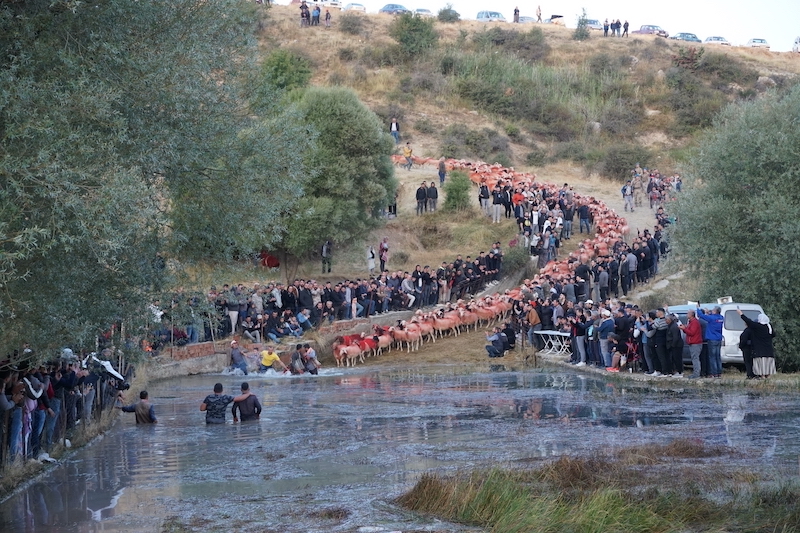
Since Burdur is a newly opened province for tourism, it has many little-known tourist spots. You can find more information about places to visit in Burdur by checking out my articles below.
I think boutique tour companies should consider adding these festivals to their routes! Kibyra, Salda Lake, Burdur, Sagalassos would be a great route from here.
What You Will Find In This Article
What Does My Wool Böğet Mean?
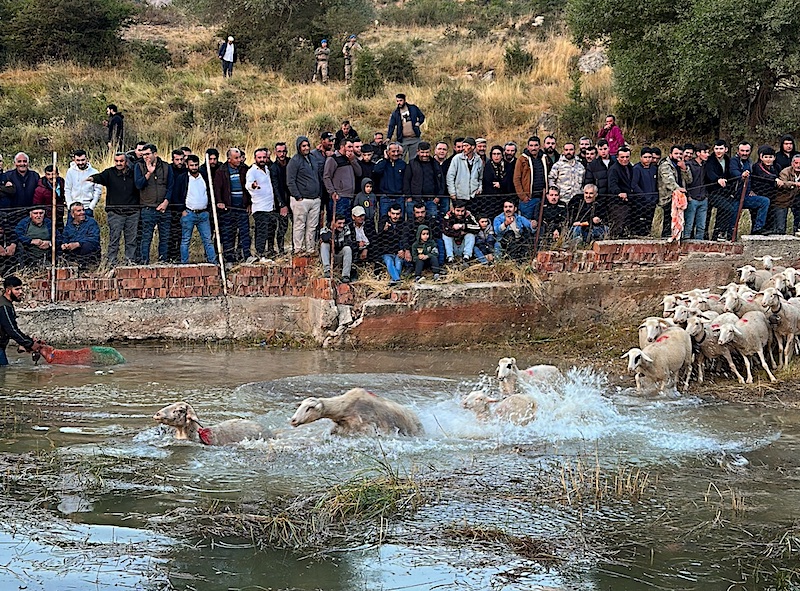
First of all, let's look at the meanings of the words "yünım" and "böğet" mentioned in the festival, and then I will move on to how the festival is celebrated.
In pure Turkish;
- “to wash” means to wash. Woolum is also used in its noun form, meaning washing.
- “Böğet” means a small pond or puddle formed by setting a dam in front of the water. “Bogemek” means to accumulate.
When the pair of wool and berries comes together, it means "to wash in a puddle". The activity carried out for the purpose of washing and cleaning the sheep is called woolum böğet. The blackberry in Hasanpaşa Village has been used for generations, it is not a place specially prepared for this festival.
Before entering the winter, which has been going on for at least 750-800 years in Anatolia; It is estimated that the tradition of cleaning the sheep that had traveled in the plateau during the summer, both from diseases and their feathers, and prepare them for the winter, came to Anatolia from the Central Asian Turks.
Of course, when this tradition began, there were neither medicines for animals nor veterinarians. People have found this solution for the health of animals. At the end of the summer season, the sheep were washed for their health, their wool was cleaned, and the clean sheep were handed over to their owners with a ceremony.
How is Woolen Böğet Festival Celebrated?
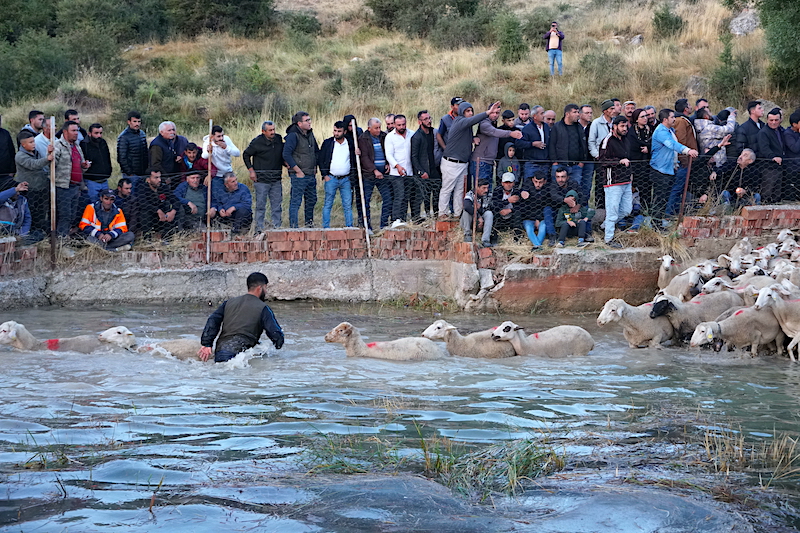
Woolen and Böğet Festivals are celebrated every year in the first week of September as the Shepherd's Festival in Hasanpaşa Village of Burdur's Tefenni district.
The celebrations begin on Saturday with the preparation of the sheep. Dyeing the sheep with natural dyes for the festivities is one of the first stages of the preparation process. Saturday afternoon, which is considered a training session for the sheep toast ceremony is being done. You can think of this ceremony as a workshop in which the shepherd teaches the sheep what to do. To the pioneer sheep that will lead the herd behind pullers It is said. The Elcik sheep, which will lead the herd, is painted with powder dye extracted from the graft stone extracted from Beydağları. Put the tufts in the front, the others in the back, so the attempt to enter the water is rehearsed the day before the actual wool.
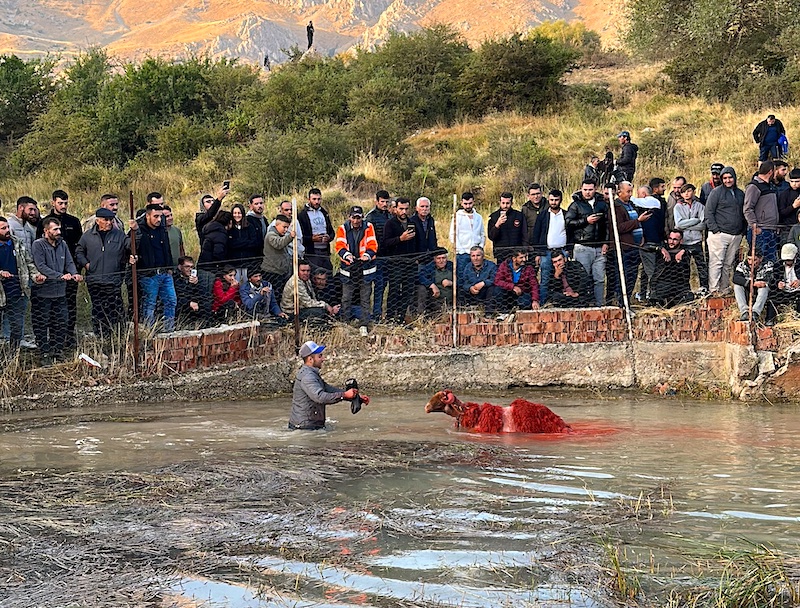
On Saturday evening, musical entertainment is held in the village square with shepherds and guests from surrounding villages. Village people prepare meals at home and open their homes to guests. The hospitality of the Turkish people begins to show itself here. These entertainments continue until the morning. At the festival we attended in 2023 (I don't know the previous one), an entertainment area was prepared and a music system was installed at a point overlooking the berry.
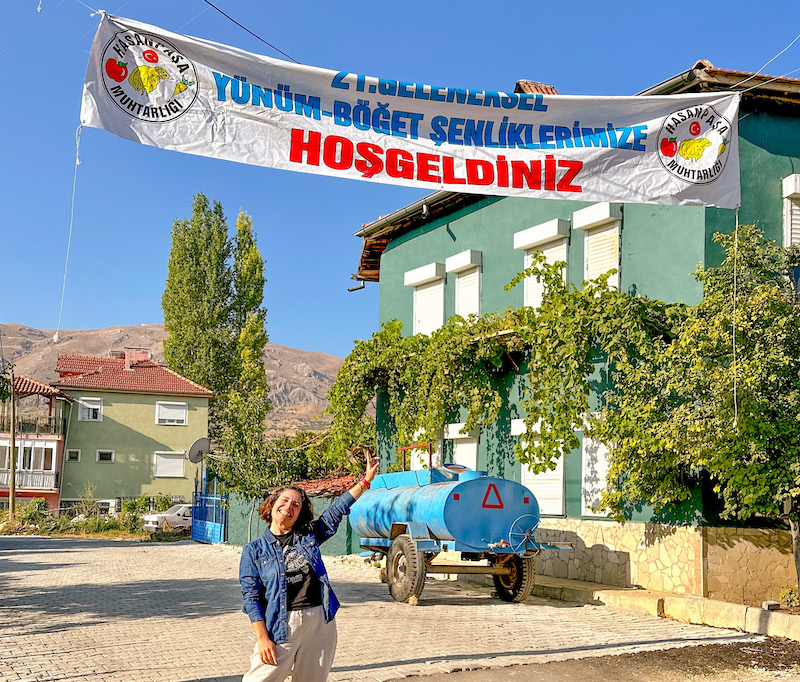
The main ceremony begins around 05:30-06:00 on the second day of the festivities, namely Sunday. The reason why the ceremony starts so early is that when it gets light, the sheep see the water and the reflection in the water and are afraid to enter the water. The aim is to have all the herds in the water before the sun rises. The shepherds take turns bringing their herds down to the village, especially the herds coming from the surrounding villages. Giving priority to surrounding villages is an indication of the hospitality of the Turkish society. Guests are given priority.
In front, the shepherd and his friends hold a bag with feed. Shepherds call their sheep by shouting loudly. At the forefront is the Elcik sheep, highlighted with its colorful paint, followed by the herd. The real skill here is; When the shepherd enters the water, first the elcik sheep and then the whole flock follow the shepherd. Very different scenarios can occur, such as sometimes the puller enters the water but the flock does not, sometimes the puller does not enter the water, sometimes a few sheep from the herd enter the water and the others do not.
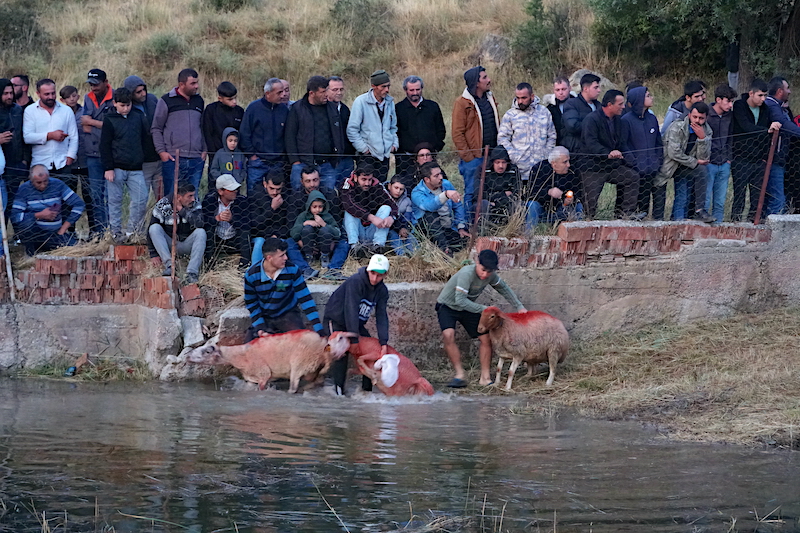
Since the main purpose of the ceremony is for the whole herd to enter the water and be washed and cleaned, the shepherd tries to put the herd into the water again and again, three or five times if necessary, until the herd enters the water. After the flock enters the water, the shepherd and his friends make sure that all the sheep are thoroughly cleaned and fully submerge them. The shepherd of the washed flock does not immediately come out of the water, but helps the shepherds of the flocks that come after him. This is a sign of cooperation.
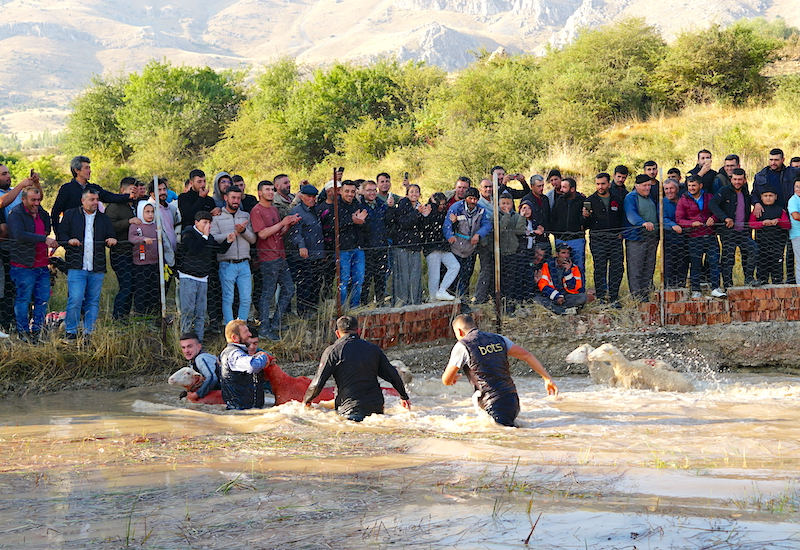
One of the entertaining parts of the ceremony is the part where the shepherds who enter the water tell what they have done to bring their flock to this day, shouting cries and sometimes singing poems. If he entered someone's field and damaged it, or if he made a sacrifice so that his flock would be well-fed, he will talk about it loudly. At the festival I attended, shepherds were generally complaining to the headman, I don't know why. This part of the ceremony is an indication of tolerance in Turkish society.
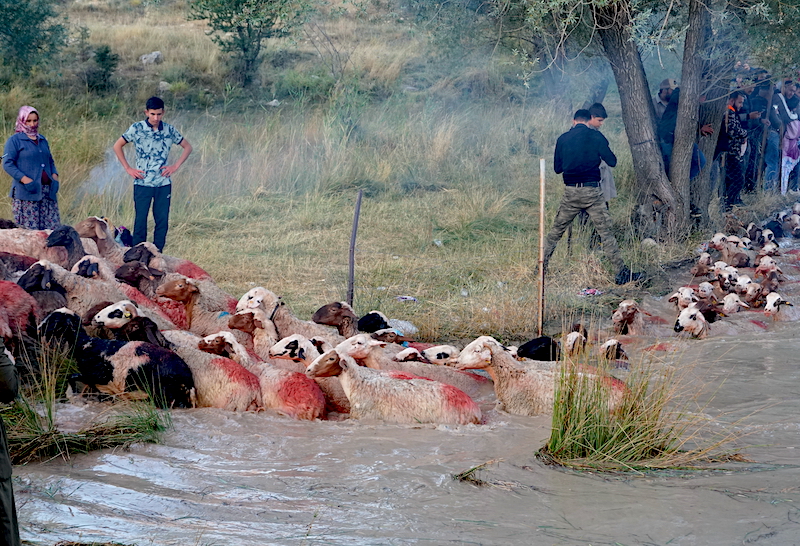
After gathering his flock from the water, the shepherd puts on his cleanest, newest clothes with his family. Now the summer season is over for the shepherd and he is ready for winter. Now this is a holiday for the shepherd.
During the Shepherd's Feast held in Hasanpaşa, a jury evaluates the herds that descend to the field. The shepherd who manages his herd best and brings his herd to the vine fastest and without hesitation is selected and rewarded. The Yünüm Böğet Festival ends with the award ceremony held in the village square and the morning soup.
In order to continue this tradition, which has lasted for hundreds of years and has been passed down from grandfather to grandson for generations, the herds must continue in the villages. Unfortunately, the number of herds and the number of sheep in the herds are decreasing every year. I hope this ancient tradition will continue for many more years.
Where are the Woolen Böğet Festivals & Shepherd's Feast Held?
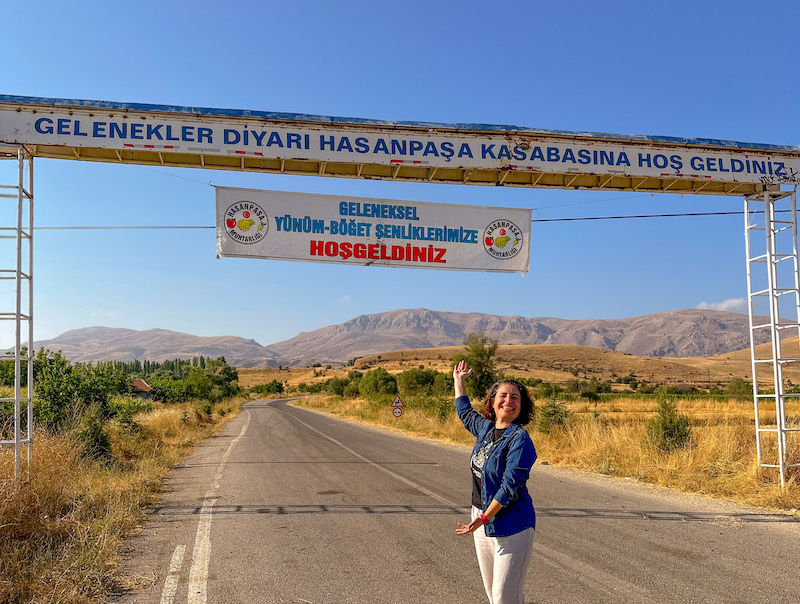
Woolen Böğet Festivals are now held in only two places in Türkiye. One of them is in Hasanpaşa Town of Burdur's Tefenni district, the details of which I tried to convey in this article, and the other is in Denizli's Çal district. The origin and reason for holding both festivals are the same. The region is called Teke Region and is one of the places where the Central Asian nomad culture is intensely experienced.
When is the Yünüm Böğet Festival & Shepherd's Feast Held?
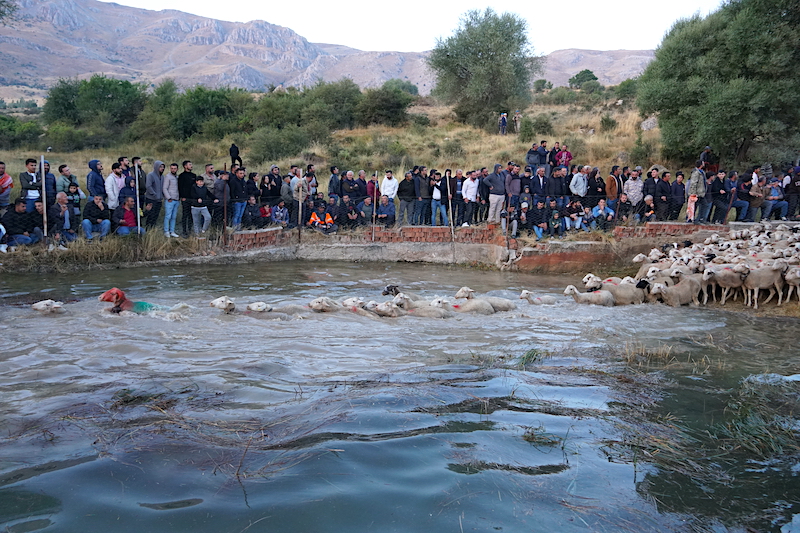
The Woolen and Böğet Festivals in Hasanpaşa Town of Burdur's Tefenni district are held every year on the first weekend of September, and the ceremonies in Denizli's Çal district are held on the last weekend of August. If you miss one, you may have the opportunity to catch the other.
Derviş Zaim's Devir Movie About the Woolen and Böğet Festivals
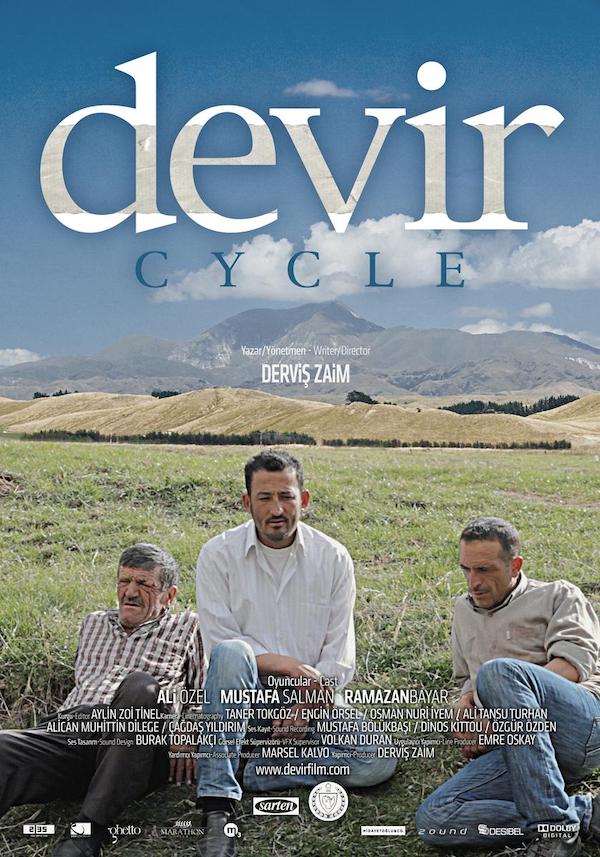
The Shepherd's Festival held in Hasanpaşa also inspired the famous director Derviş Zaim. Zaim's 2013 film Devir tells the story of the woolen and blackberry festivals. The film, set in Hasanpaşa, is about the shepherd nicknamed Takmaz, who has been the champion for eight years during the Shepherd's Holiday, and tells young people the tricks of shepherding.
Derviş Zaim said the following about the movie Devir: “This film deals with the strange, funny, sometimes tragic world inhabited by shepherds who are caught between their beliefs and the modern world, struggling to learn where they belong or to teach their young people. Film; It aims to bring a new breath to today's cinema in terms of production, production and understanding with its sources of inspiration, the way it handles reality, its structure and the way it is constructed. Devir continues the chain of films I have made before, in a different context and in a different way, in terms of establishing a relationship with the cultural and historical heritage.. "
